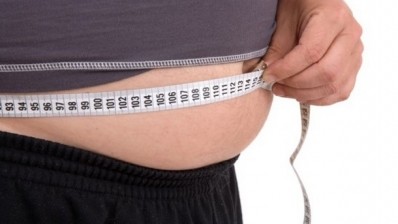Friend or foe: What is the evidence on zero-calorie sweeteners and obesity?

Mounting concerns over harmful health effects of sugar consumption over the past 30 years as led to an increased intake of zero-calorie or ‘non-nutritive’ sweeteners – based on the simple premise that switching out ‘empty calories’ in sugary foods with low or no calorie sweeteners would reduce overall calorie intake and halt weight gain and obesity.
Despite this, the prevalence of obesity has increased dramatically over this time – leading some to question whether sweeteners are of any benefit, while others suggest that the obesity puzzle is too complex to solve just with sweeteners.
Such conflicting reports on the science behind sweeteners may have many confused over where the evidence actually lies on the replacement of sugars with low or zero calorie sweeteners.
'Cannot be justified' or 'false demon'?
Indeed, a report by the French Agency for Food, Environmental and Occupational Health & Safety (ANSES) concluded that recommending intense sweeteners as a way to reduce sugar intakes cannot be justified as a public health strategy.
The report warned that there is currently no conclusive evidence for the beneficial effects of intense sweetener consumption on the incidence of type 2 diabetes, blood sugar management for diabetics, sweetness perception or weight management – and argued that further research on both the possible pros and cons is warranted.
On weight control in particular, ANSES noted that studies in adults and children had reported conflicting results – while some even saw a paradoxical association with weight gain, although the reason had not been established.
However, public health nutrition and policy expert Professor Jack Winkler, among many others, has repeatedly argued that zero calorie sweeteners are one of the most powerful tools in the fight against obesity – warning that their demonisation has wrongly robbed them of merit as a “fast route” to cutting calorie content.
“Why are they not used anywhere other than fizzy drinks and chewing gum? On current scientific evidence the proven health risks of sugar greatly exceed any potential health risk of sweeteners,” questioned Winkler, who is an adviser to the pressure group Action On Sugar.
“Most people, including children, would be healthier if we substituted sugar with sweeteners.”
Bad news and biased reporting?
Meanwhile, behavioural economist Dr Nick Southgate noted that negative stories over the safety or effectiveness of sweeteners are often repeated in the mainstream press, while much of the positive data goes unpublished – because simple, scandalised versions of events hold more appeal than the convoluted science.
“That’s partly why scare stories have appeal - because they have a simplicity that doesn’t always have anything to do with the truth,” he warned.
Professor Jason Halford, an obesity expert from the University of Liverpool, agrees – noting that often it is the 'bad news' that gets through to consumers with a disproportionate amount of coverage considering how much of the published body of sweetener science it represented.
“I’m not saying the evidence is 100% one way, or the evidence is a 100% the other way but it may be that there is a large body of evidence supporting the use of sweeteners compared with a smaller body of evidence that questions their use,” commented Halford.
“But obviously when you see it in the press you see a sort of 50/50 … But it doesn’t necessarily mean both sides of the story have the same amount of scientific evidence supporting them.”
What does the evidence say?
When it comes to the evidence, there really is a mixed bag. Previous research on the topic of artificial sweeteners has been mixed in its findings, with some research pointing to the benefit replacing sugar with low-calorie sweeteners.
However, research has also suggested that use of non-calorific sweeteners may be ineffective in battling obesity, and could be associated with an increased risk of metabolic diseases including obesity and diabetes. Research published in Nature, recently suggested that sweeteners in foods and drinks could lead to an increased risk of metabolic diseases like diabetes by changing the way our gut bacteria interact with the body.
"Our relationship with our own individual mix of gut bacteria is a huge factor in determining how the food we eat affects us,” commented Dr Eran Elinav from the Weizmann Institute in Israel – who led the study. “Especially intriguing is the link between use of artificial sweeteners – through the bacteria in our guts – to a tendency to develop the very disorders they were designed to prevent; this calls for reassessment of today's massive, unsupervised consumption of these substances.”
Further research published in Appetite, has suggested a potential link between artificially sweetened products and a range of diet-related health conditions, including type 2 diabetes, stroke, hypertension and heart attack – the same chronic diseases that have been linked to excessive sugar consumption.
Indeed, the study led by Professor Susan Swithers from Purdue University also claimed that exposing children to high quantities of sweeteners, whether caloric or non-caloric could also predispose children to sweet foods in future. However, such claims are contrary to evidence that has found intake of sweetened drinks does not lead to increased sugar intake or calorie compensation.
Indeed, a 2010 review in the British Journal of Nutrition found that “there is no consistent evidence that low-energy sweeteners increase appetite or subsequent food intake, cause insulin release or affect blood pressure in normal subjects, ” while a 2013 study published in the American Journal of Clinical Nutrition came to the same conclusion.
Sweetener Safety
Sweeteners are some of the most thoroughly tested ingredients in the food supply chain and have been deemed safe by all major scientific and regulatory bodies - from Health Canada to the FDA, the Joint Expert Committee on Food Additives (JECFA) of the World Health Organization (WHO) and Food and Agriculture Organization (FAO); and the European Food Safety Authority (EFSA).
Despite such suggestions of potentially negative implications from early phase research or animal studies, the vast majority of clinical data looking at the replacement of sugar for a zero-calorie sweeteners does show that the process aids or maintains weight loss.
“The evidence that the intake of sugared beverages contributes to recent increases in obesity is strong and growing. Recent randomised controlled trials in children have shown that substituting artificially sweetened fizzy drinks for sugared drinks reduces the risks of becoming overweight,” commented Professor Sir Stephen O’Rahilly FRS at the University of Cambridge, UK – reacting to the previously mentioned Nature study.
In fact a 2012 study also published in the American Journal of Clinical Nutrition reported that replacing caloric beverages with non-caloric beverages was an effective weight-loss strategy, while a 2009 study showed that those who have lost weight and successfully kept it off adopt a number of strategies, including drinking more ‘non-nutritive’ sweetened drinks.
Further research presented at the IUNS 20th International Congress of Nutrition in Granada, Spain, suggested that low calorie sweeteners can be an effective tool in weight management – with researchers concluding that when combined with a healthy diet, being physically active and adopting other healthy behaviours, the use of low-calorie sweeteners to reduce calories can form part of a winning strategy for improved weight management and better health.
No such thing as a silver bullet
Despite the solid evidence for their benefits, many are still to be convinced that zero-calorie sweeteners are ‘the answer’ to solving obesity. Once thought as a ‘silver bullet’ that could wipe out obesity on its own, it is now clear that even though the premise of switching out a high calorie sweetener like sugar for one with lower calories seem common sense when looking to reduce calories, consumer behaviour and attitudes are much more complex than first thought.
According to the International Sweeteners Association, the use of low calorie sweeteners is not a silver bullet - but one of the tools that could help in the reduction of energy intake and subsequently weight loss.
“More work is needed to understand better the metabolic effects of artificial sweeteners,” said Dr John Menzies from the University of Edinburgh. “But in contrast, the scientific evidence for the contribution of sugar over-consumption to obesity and its associated diseases – diabetes, hypertension and cancer – is very strong.”
“As such, it seems premature to discourage the use of artificial sweeteners in favour of sugar,” he commented.










